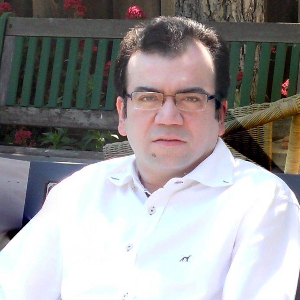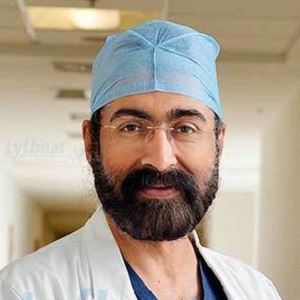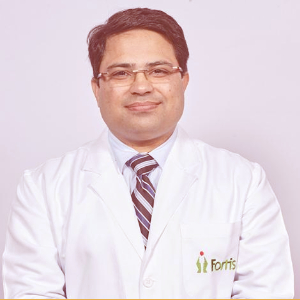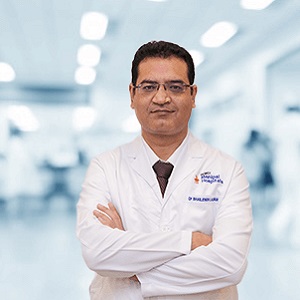Liver Transplant in India: A Comprehensive Guide for International Patients
Liver transplantation is a complex but life-saving procedure for patients with end-stage liver disease or acute liver failure. Over the years, India has emerged as a global hub for liver transplants due to its advanced medical facilities, skilled professionals, and cost-effective treatments.
Understanding Liver Transplant
A liver transplant involves replacing a diseased liver with a healthy liver from a donor. This surgery is typically considered when the liver can no longer function adequately on its own.
Key Points for Prospective Transplant Patients
Eligibility: Candidates for liver transplants usually have chronic liver diseases such as cirrhosis, hepatitis B or C, or liver cancer. Eligibility is determined through a thorough evaluation process including blood tests, imaging studies, and psychological assessment.
Pre-Transplant Evaluation: This involves a series of tests to assess the severity of liver disease, overall health status, and the presence of other medical conditions that may affect the surgery’s outcome.
Living vs. Deceased Donor: In India, liver transplants can be performed using either living donors (usually a close family member) or deceased donors. Living donor transplants are more common due to the shortage of deceased donor organs. It is almost impossible to get decased donor for international patients, unfortunately.
Post-Transplant Care: After the transplant, the patient needs to follow a strict regimen of medications to prevent rejection and regular follow-ups to monitor liver function and overall health.
Key Points for Donors
Eligibility and Testing: Living donors must be in excellent health and typically between the ages of 18 and 55. They undergo comprehensive medical and psychological evaluations to ensure suitability for donation.
Risks and Recovery: Donating a part of the liver is generally safe, but like any major surgery, it carries risks. Donors usually recover fully within 6 to 8 weeks, with the liver regenerating to its normal size within a few months.
Legal and Ethical Considerations: In India, organ donation is strictly regulated to prevent exploitation and ensure ethical practices. Donors and recipients must comply with legal requirements, including thorough documentation and ethical approval from an authorized committee.
It is recommended that donor be a first degree relation or a near relative (spouse). Second degree relations may be considered if there is no suitable first degree donor available. Beyond these relationships, donors are not allowed. To know more on this read: First Degree, Second Degree & Near Relative in Organ Transplant
Family Considerations
Support System: The family plays a crucial role in the transplant journey, from providing emotional support to assisting with post-surgery care. Understanding the entire process can help manage expectations and reduce anxiety.
Financial Planning: It is essential to plan for the costs associated with the transplant, including surgery, hospitalization, medications, and follow-up care.
The Liver Transplant Team
Liver Transplant is a complex procedure and is done by a team of doctors, surgeons and support staff, led by the Transplant Head. Here are the specialists who will be in your Transplant team:
- Hepatologist: A specialist in liver diseases who evaluates the patient’s condition and manages pre- and post-transplant care.
- Transplant Surgeon: A specialist who performs the liver transplant surgery.
- Anesthesiologist: A doctor who administers anesthesia and monitors the patient during surgery.
- Intensive Care Specialist: A doctor who manages the patient’s care immediately after surgery in the intensive care unit (ICU).
- Other Specialists: Including infectious disease experts, dietitians, and psychologists who contribute to the comprehensive care of the patient.
Cost of Liver Transplant in India
The cost of a liver transplant in India ranges from $25,000 to $35,000, significantly lower than in Western countries where the cost can exceed $500,000. Several factors contribute to the lower costs in India:
- Lower Operational Costs: Lower costs of living and operational expenses in India contribute to the reduced overall cost of medical procedures.
- Government Support: Policies and incentives provided by the Indian government to promote medical tourism help in keeping costs down.
- Skilled Workforce: India boasts a large pool of highly skilled medical professionals who offer world-class treatment at competitive prices.
Top 10 Liver Transplant Surgeons in India
Here are the most reputed Liver Transplant Surgeons in India with excellent expertise in doing complex Liver Transplant procedures.
- Liver Transplant Surgeon and HPB Surgeon, New Delhi, India
- Over 33 years’ experience
- Max Super Specialty Hospital, Saket, New Delhi
Profile Highlights:
- Dr. Subhash Gupta is one of the finest Gastrointestinal and Liver Transplant Surgeons in the country. He has garnered an outstanding reputation in the field of Biliary, pancreas, and liver transplantation.
- He has conducted over 300 Living Donor Liver Transplants in the year 2013 each lasting 10-16 hours long.
- Dr. Subhash Gupta is also known to pioneer the development of Living Donor Transplant or LDLT.
- Liver Transplant Surgeon, Gurugram, India
- Over 21 years’ experience
- Medanta-The Medicity, Gurgaon
Profile Highlights:
- Known to be a pioneer in the field of liver transplantation, Dr. Arvinder Singh Soin leads one of the world’s most successful liver transplant programs at Medanta. Currently, he is the Chairman of the Institute of Liver Transplantation and Regenerative Medicine, at Medanata- The Medicity, Gurgaon, India.
- Quite renowned for having a 95 percent success rate, and having performed over 2500 liver transplants throughout his career, Dr. Arvinder Singh Soin was awarded the Padma Shri by the President of India, for his contributions to the field of Medicine.
- Liver Transplant Surgeon and HPB Surgeon, Chennai, India
- Over 30 years’ experience
- Dr. Rela Institute & Medical Centre
Profile Highlights:
- Dr. (Prof.) Mohamed Rela is known as one of the best liver transplant surgeons in the world. His name has also entered the Guinness Book of Records for performing liver transplantation of a 5-day-old baby.
- With more than 30 years of experience, Dr. Rela is known as a pioneer in liver transplantation & hepatopancreatobiliary (HPB) surgery.
- Dr. Mohamed Rela is the Chairman and Director of Dr. Rela Institute and Medical Centre, Chennai, India; and the Professor of Liver Surgery and Transplantation, at King’s College, Hospital in London as well.
- During his career of almost 30 years, Dr. Rela has performed over 4500 liver transplantations worldwide.
- Liver Transplant & HPB Surgeon, Gurugram, India
- Over 17 years’ experience
- Fortis Memorial Research Institute
Profile Highlights:
- Dr. Vivek Vij is considered one of the most reputed liver transplant surgeons who has over 17 years of proficient experience and has performed multiple exemplary medical procedures involving advanced surgical skills that cover the entire gamut of gastroenterological surgeries.
- Dr. Vivek Vij’s expertise lies in Adult & Paediatric Liver Transplant, Complex Liver Surgery, Advanced Pancreato-biliary Surgeries, Advanced Laparoscopic and Robotic Surgeries, Basic Science Research, and Regenerative Medicine. His outstanding expertise in liver transplant procedures has earned him many accolades and prestige.
- Liver Transplant Surgeon & HPB Surgeon, New Delhi, India
- Over 19 years’ experience
- Manipal Hospitals, New Delhi
Profile Highlights:
- Dr. Shailendra Lalwani is a renowned gastroenterologist at Manipal Hospitals, Dwarka, New Delhi, who has over 19 years of experience as a specialist. His expertise lies in Liver Transplantation and Hepato-pancreatic biliary surgery.
- For his outstanding contributions to the field of gastroenterology, Dr. Shailendra Lalwani has been honored with several awards and recognition. He is also an active member of the Delhi Medical Council.
- Surgical Gastroenterologist, Liver Transplant Surgeon, New Delhi, India
- Over 18 years experience
- Indraprastha Apollo Hospital, New Delhi
Profile Highlights:
- Dr. Neerav Goyal is one of the best Liver transplant surgeons in India. He is the Head of the Apollo Liver Transplant, Hepatobiliary, and Pancreatic Surgery unit in New Delhi.
- Dr. Neerav Goyal is providing the best care to patients with Hepatectomy/ liver transplant in case of liver cancer or liver cirrhosis, surgeries for pancreatic cancer, etc.
- He is a Gold Medalist practitioner who performs complex surgeries with success.
- Dr. Goyal has performed over 2100 liver transplants in his 18 years of experience. This also includes 500+ cadaver liver transplants and 220 pediatric liver transplants.
- Liver Transplant Surgeon & HPB Surgeon, Gurugram, India
- Over 15 years’ experience
- Artemis Hospital, Gurgaon
Profile Highlights:
- Dr. Giriraj Singh Bora is a liver transplant surgeon, who is known for being the founding member of the Liver Transplant Society of India.
- He is the first doctor to perform a liver transplantation in Rajasthan. He is also known for carrying out the first deceased donor and the first living donor liver transplants in Rajasthan and has also been instrumental in starting a liver transplant program in the region.
- HBP & Liver Transplant Surgeon, Bengaluru, India
- Over 35 years’ experience
- Apollo Hospitals, Bengaluru, Gleneagles Global Hospital Bengaluru
Profile Highlights:
- Dr. Sanjay Govil is an accomplished HBP & Transplant Surgeon. He completed FRCS from the Royal College of Surgeons in England.
- He has achieved a few major accomplishments throughout his life as well, which include the First Liver Resection in Karnataka, in 2007, First Laparoscopic Liver Resection in a Cirrhotic Liver in Karnataka in the year 2008, First Laparoscopic Pancreatic duodenectomy in Karnataka in 2008, First ALPPS procedure in India in 2012 and several more.
- He trained in liver surgery and transplantation at Kings College Hospital in London, Queen Mary’s Hospital in Hong Kong, and the Graduate School of Medicine in Tokyo.
Top 10 Liver Transplant Hospitals in India
Here are the most reputed Hospitals in India with excellent expertise in doing Liver Transplant Procedures.
- City: Gurugram, India
Hospital Highlights:
- One of India’s best and largest multi-specialty hospitals, Medanta was built with the aim to bring India to the highest standards of medical care. The hospital has been providing the best medical services to its patients, since its inception, with care, commitment, and compassion.
- Equipped with 1250 beds, the hospital was founded by Dr. Naresh Trehan in the year 2009 with an aim to provide the best medical care at affordable costs. The hospital is spread across 43 acres and includes 45 operation theatres and 350 beds dedicated solely to ICU. The hospital includes over 800 doctors, and more than 22 specialty departments and has a dedicated floor for individual specialty in order to offer the best services under one roof.
- The hospital is considered one of the premier institutes in India for Cardiac Care and includes staffs and members of high caliber. The hospital has 6 distinct centers of excellence.
- City: Gurugram, India
Hospital Highlights:
- One of the most well-known hospitals in the Delhi NCR, Artemis Hospital is the first hospital in Gurugram to get accredited by the Joint Commission International.
- With more than 40 specialties, the hospital has been designed to be one of the most technically advanced hospitals in the country, with the best medical and surgical health care. The hospital has eleven special and dedicated centers, for Heart, Cancer, Neurosciences, etc.
- The latest technologies in the hospital include Endovascular Hybrid Operating Suite and Flat panel Cath Labs for the cardiovascular department, 3 Tesla MRI, 16 slice PET CT, 64 Slice Cardiac CT Scan, HDR Brachy Treatment, and highly advanced Image Guided Radiation Treatment techniques (LINAC) are installed in the hospital.
- The hospital has won several awards as well, since its inception.
- City: Gurugram, India
Hospital Highlights:
- Fortis Memorial Research Institute is a multi-super-specialty, quaternary care hospital with 1000 beds. The hospital comprises reputed clinicians, and international faculty and is also equipped with cutting-edge technology. The hospital is a part of Fortis Healthcare Limited, a reputed chain of private hospitals in India.
- It is a NABH-accredited hospital that is spread across 11 acres of land and has a capacity of 1000 beds. The hospital has 55 specialties and is one of the premier health care centers in the Asia Pacific region popularly known as “the Mecca of Healthcare”.
- The hospital has 260 diagnostic centers and is also equipped with the latest and advanced techniques that include 3 Telsa which is the world’s first Digital MRI technology. The hospital also has world-class Radiation Treatment techniques which have been developed by leading technology experts from Elekta and Brain Lab.
- City: New Delhi, India
Hospital Highlights:
- Indraprastha Apollo Hospital is a 700-bedded multispecialty hospital in the heart of the capital of India. It is a part of Apollo Hospital group, one of India’s most reputed healthcare chains. Indraprastha Apollo Hospital has been accredited by Joint Commission International, making it the first internationally accredited hospital in the country in 2005.
- There are 52 specialties in the hospital with one of the best cardiology centers in the country. The hospital is also equipped with State of the art infrastructure facilities with the largest Sleep Lab in Asia and the largest number of ICU bed facilities in India.
- The latest and highly advanced technologies that are installed in the hospital include Da Vinci Robotic Surgery System, PET-MR, PET-CT, Cobalt-based HDR, Brain Lab Navigation System, Tilting MRI, Portable CT scanner, 3 Tesla MRI, 128 Slice CT scanner, DSA Lab, Endosonography, Hyperbaric Chamber and Fibro scan.
- City: New Delhi, India
Hospital Highlights:
- One of the well-regarded providers in India committed to the highest standards of clinical excellence and patient care, Max Super Specialty Hospital is a part of Max Healthcare, which is the second-largest healthcare chain in India. Regarded as one of the most well-regarded healthcare providers in the country, Max Super Specialty Hospital is committed to the highest standards of clinical excellence as well as patient care. The hospital is also equipped with the latest technology as well as cutting-edge research. The hospital is known to deliver and ensure the highest level of patient care.
- The hospital has more than 500 beds and offers treatment for over 35 specialties. The hospital also holds the credit of having installed the first Brain Suite in Asia. This is a highly advanced Neurosurgical machine that allows MRI to be taken while surgery is ongoing.
- Other advanced and latest technologies are also installed in the hospital such as the 1.5 Tesla MRI machine, 64 Slice CT Angiography, 4D ECHO, LINAC, and 3.5T MRI machine.
- City: Hyderabad, India
Hospital Highlights:
- Located in the vibrant city of Hyderabad, Apollo Health City is a world-renowned medical facility that provides outstanding care and treatment to patients coming from different parts of the world.
- Founded in 1988, this 550-bed multispecialty hospital with 50 specialties and 12 Centres of Excellence continues to deliver outstanding outcomes for patients with the simplest to the most complicated medical conditions.
- Backed by the latest medical equipment and a dedicated team of professionals, the hospital provides comprehensive treatment across various specialties including, cardiology, critical care, neurosciences, cancer, orthopedics, gynecology, ENT, transplants, gastroenterology, etc.
- Apollo Health City is a cutting-edge healthcare facility that combines various facilities under one roof. These may include state-of-the-art physical medicine, rehabilitation, and wellness services with education, research, telemedicine, innovative medical devices, disease management programmes, and medical talents.
- The hospital is known for offering top-notch cancer treatment accompanied by cutting-edge facilities and technology.
- The hospital also offers a broad spectrum of cosmetic procedures that improve not just appearance but also comfort.
- In 2011, Apollo Health City was the recipient of the Asian Hospital Management Award (AHMA).
- In 2013, the Government of India recognized Apollo Health City as the top medical tourism destination in the country.
- City: Mumbai, India
Hospital Highlights:
- Kokilaben Dhirubhai Ambani Hospital, Named after the wife of Indian industrialist Dhirubhai Ambani, the founder of Reliance Industries, this is one of the top hospitals in Mumbai. This 750-bed multi-specialty hospital became operational in 2009. Known as one of India’s most advanced tertiary care facilities, the hospital is designed to raise India’s global standing as a healthcare hub, with an emphasis on excellence in clinical services.
- Kokilaben Dhirubhai Ambani Hospital uses Protocol and Care Pathway based treatment models to ensure the best outcomes for patients.
- The hospital represents a confluence of top-notch talent, cutting-edge technology, state-of-the-art infrastructure, and, most importantly commitment.
- The hospital also holds the accreditation of the NABH, NABL, CAP, and JCI.
- The hospital has been recognized as the No. 1 Multispecialty Hospital in Mumbai and the West Zone for the fifth year in a row in 2020 by The Week.
- City: Chennai, India
Hospital Highlights:
- Apollo Hospitals, Chennai, is one of the best hospitals for heart care in India. Over the years, Apollo has expanded all over India, as a healthcare chain.
- India’s first ‘Only Pancreas’ transplant was performed in Apollo Hospital. The hospital is known for successfully performing Asia’s first en-bloc combined heart and liver transplant, and over the years, it has attained a remarkable achievement in the global healthcare space. Around 3-4 organ transplants are performed in the hospital per day.
- Equipped with over 500 beds, this hospital in Chennai was established in 1983 and since then has been among the most preferred hospital for patients from all over the world.
- The hospital holds accreditation of the NABH and JCI and is the first hospital in India to be ISO 9001 and ISO 14001 certified. It is also the first South Indian Hospital to receive subsequent reaccreditation from the JCI USA 4 times.
- City: Chennai, India
Hospital Highlights:
- Established in 1999, Gleneagles Global Hospital, Chennai, is one of the top healthcare facilities in Southern India. It is part of the Gleneagles Hospital Chain, which is the fourth largest healthcare chain in the country. The hospital specializes in multi-organ transplants of kidneys, liver, lungs, heart, etc.
- The hospital has an excellent infrastructure and state-of-the-art lab and equipment set-up. The hospital boasts cutting-edge technologies, a highly skilled team of doctors and surgeons, and trained support staff. Located in Perumbakam, Chennai, it is one of India’s premier health care destinations. The hospital has performed some of the most complex surgical and clinical procedures in India including multi-organ transplantations.
- The hospital’s lung transplantation program is one of the best in the country. The hospital is known for having performed India’s first single lung transplant and first minimal invasive lung transplant. It is also the only Indian hospital to be associated with King’s College Hospital, London, United Kingdom for liver transplantations.
- City: Hyderabad, India
Hospital Highlights:
- KIMS Hospital (a brand name of Krishna Institute of Medical Sciences) is one of the largest and best multi-speciality hospitals in Hyderabad. The hospital provides various treatments to an enormous number of patients.
- The hospital has a capacity of more than 3000 beds. KIMS Hospitals offers different healthcare services in more than 25 specialities and super specialities.
- The hospital is equipped with modern medical equipment and technology. It has robotic equipment to provide minimal invasive techniques for patients.
- The hospital is aimed at providing world-class healthcare facilities and services at an affordable cost for patients.
- The various specialities and departments of the hospital include neurosciences, gastroenterology & hepatology, robotic science, reproductive sciences, dental science, oncological sciences, organ transplantation, heart and lung transplantation and mother and child care.
- City: Kolkata, India
Hospital Highlights:
- Established in 2003, Apollo Gleneagles Hospitals is a 750-bed multispecialty tertiary care hospital situated in Kolkata.
- With 33 Centres of Excellence and more than 50 specialties, Apollo Gleneagles Hospitals, Kolkata is capable of handling all sorts of patients.
- This tertiary care hospital, which is a 100% subsidiary of Apollo Hospitals Enterprise Ltd., India, is regarded as one of Kolkata’s top hospitals.
- The facility is a complete blend of cutting-edge technology, state-of-the-art infrastructure, and genuine hospitality.
- Focusing on numerous specialties, the hospital provides all-inclusive medical treatments supported by cutting-edge technology and a staff of highly qualified medical specialists.
- Patients across the globe come to Apollo Gleneagles Hospitals Kolkata for their treatment. Moreover, international patients receive full attention and assistance for their treatment and are provided with a hassle free experience.
- Apollo Gleneagles Hospitals, Kolkata is the only hospital in Eastern India to hold the Joint Commission International (JCI) certificate.
- It is also the only hospital in Kolkata to hold the NABL accreditation in six different categories, which includes Clinical Biochemistry, Clinical Pathology, Hematology & Immunohematology, Microbiology & Serology, and Histopathology & Cytopathology.
- Furthermore, Apollo Gleneagles Hospitals, Kolkata is known for performing the first ever Reverse Shoulder Prosthesis Replacement in East India.
- City: Bengaluru, India
Hospital Highlights:
- Established in 1991, Manipal Hospital, Old Airport Road, Bangalore is the flagship facility of the Manipal Hospitals Group, which is one of the largest networks of Multispecialty Private Hospitals in India.
- The facility is well-known for its state-of-the-art technology, performance-driven, patient-centric, and evidence-based approach.
- The facilities offered at Manipal Hospital meet the highest international standards, allowing the hospital to attract a large number of national and international patients.
- Their expertise encompasses the diagnosis and treatment of a wide range of diseases in several specializations that address both simple as well as complex medical procedures.
- There are total 600 beds accessible in the hospital for the in-patients so they may heal while being closely watched after by the medical team. In addition, it has 144 critical care units, including NICUs, ICCUs, and ICUs. Apart from that, the hospital also offers 20 contemporary, modular state-of-the-art operating rooms with all the amenities needed.
- The hospital has several departments that are overseen by highly skilled, certified, and experienced medical experts.
- One of the best departments in the hospital is that of the Cancer department which is known for its advanced cancer diagnosis and treatment facilities such as Intracavitary Chemotherapy, Biological Therapy, HIPEC, PIPEC, Nuclear Medicine, Radiation Therapy, etc.
- It is one of the few hospitals in Bangalore that provides full range of pediatric services, including pediatric emergency services, pediatric gastroenterology, pediatric neurology, pediatric cardiology, pediatric orthopaedics, pediatric allergies, pediatric immunology, and infectious diseases.
- Furthermore, Manipal Hospital, Old Airport Road, Bangalore is also regarded as one of the best hospitals for bone and spine related disorders.




















